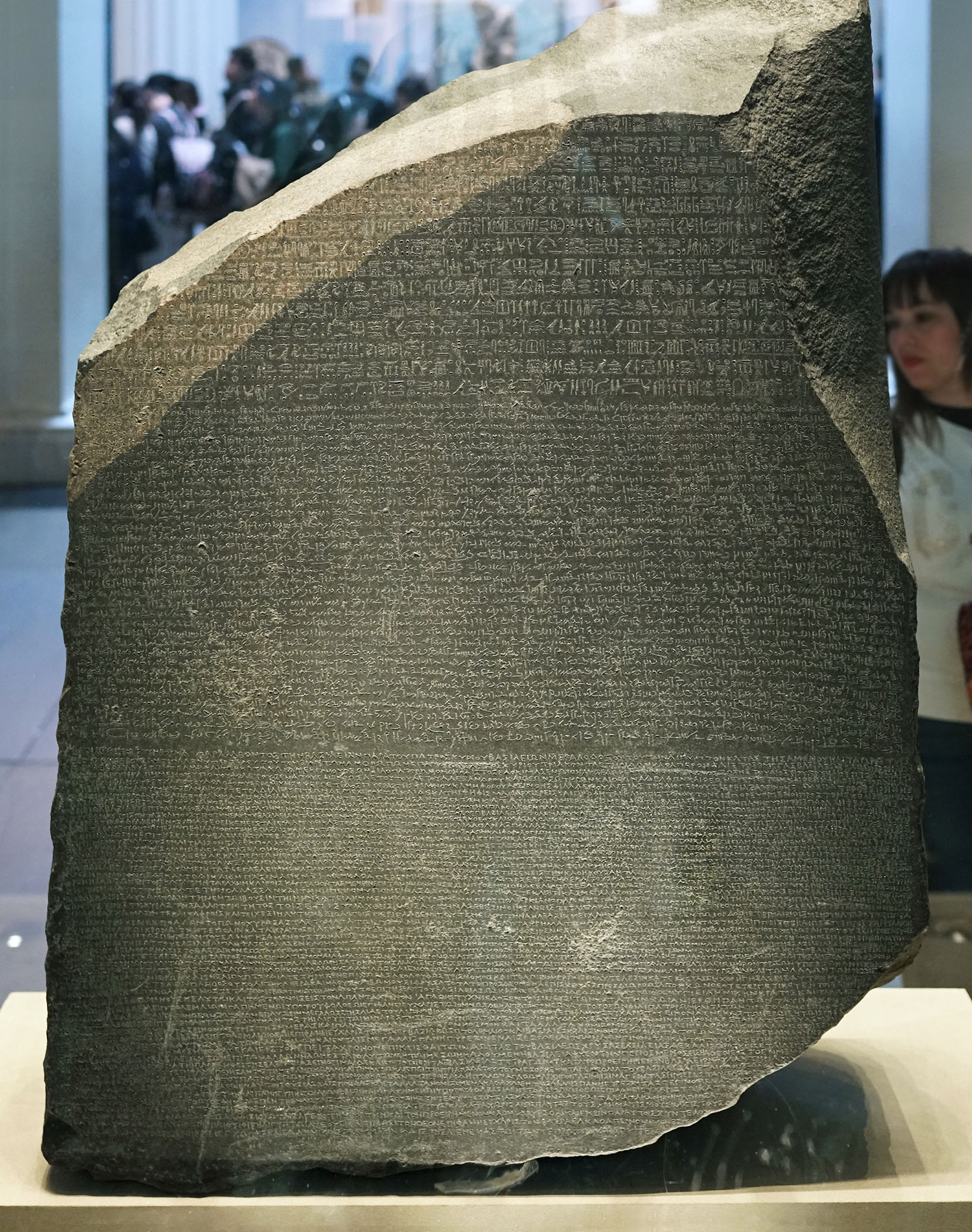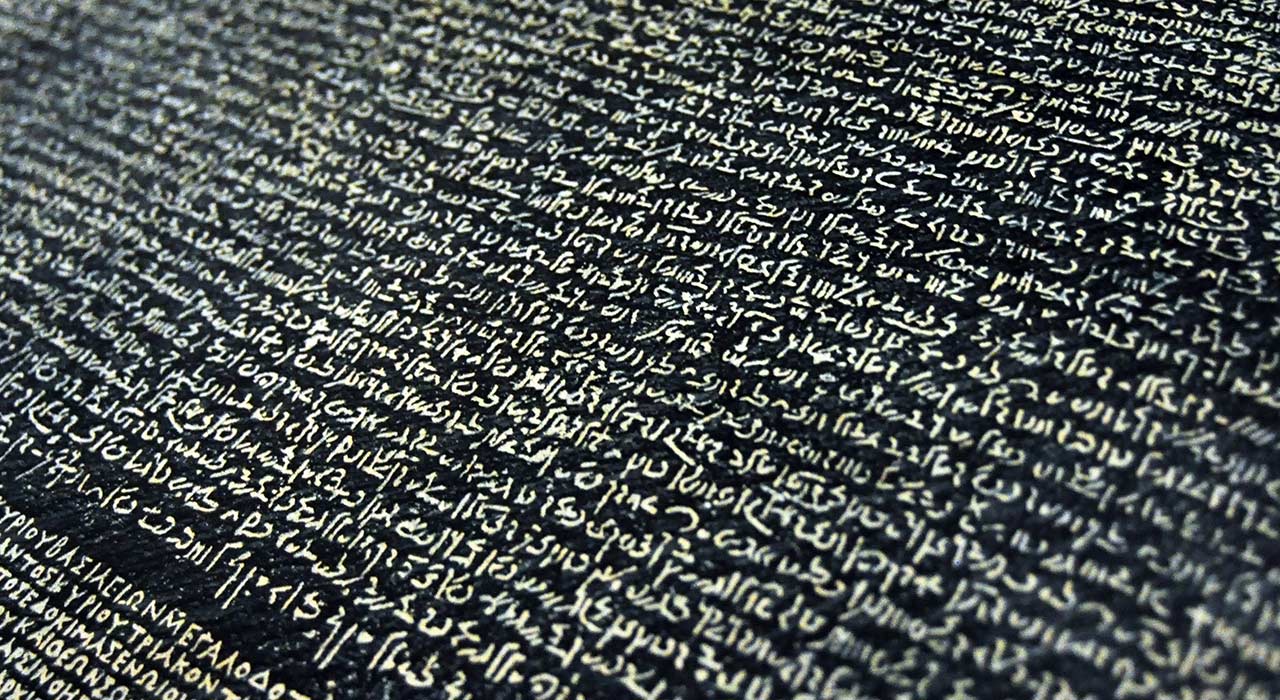

places a great deal of pressure on himself. Seeks public praise for his accomplishments. Places a great deal of pressure on himself.įeels that figuring out the inscription is useless. Has very little confidence in the ability of others. In this excerpt, the author includes Thomas Young's words to show that Young On the contrary, I think it astonishing that It should not have been made out already, and that I should find the task so difficult." He wrote to a friend: "You tell me that I shall astonish the world if I make out the demotic inscription on the Rosetta Stone. Read the excerpt from The Riddle of the Rosetta Stone. This excerpt is unbiased because it provides details about Young's actions. This excerpt is unbiased because it provides opinions about Egyptian spelling.

This excerpt is biased because it reflects an attitude about Egyptian spelling. This excerpt is biased because it reflects an attitude about Young's actions. Which statement best describes this excerpt?

He thought the third hieroglyph was part of the one for "T," whereas it actually stood for the vowel "O'." The fourth hieroglyph, the lion, meant just "L," the fifth meant "M," and the last hieroglyph stood simply for "S." In other words, the spelling in Egyptian was "Ptolmis," not "Ptolemaios." TERMS IN THIS SET (15) Read the excerpt from The Riddle of the Rosetta Stone.

"You can have it," he said, "because you are the stronger of us two." "You can have it," he said, "because you are the stronger of us two." +12 more terms Reluctantly, General Menou turned it over to the British general, Hutchinson. "Without us," they said, "this material is a dead language that neither you nor your scientists can understand." Based on The Riddle of the Rosetta Stone, which sentence from the passage explains why General Menou handed over the Rosetta Stone to General Hutchinson?Īt last the British gave in and allowed the scholars to keep the bulk of their collections. On August 1 the British surprised the French fleet at anchor near Alexandria and completely destroyed it. Then, in August 1799, Napoleon evaded the British naval blockade and returned with a new companion to France to deal with problems there. On August 1 the British surprised the French fleet at anchor near Alexandria and completely destroyed it.įor the next year, the army fended off attacks by the Turks, who had formerly ruled Egypt. Napoleon's army captured the city of Alexandria by storm on July 1, 1798, and rapidly overran the Nile Delta. Which sentence from The Riddle of the Rosetta Stone explains why Napoleon and his men were temporarily trapped in Egypt in 1798? he French were finally forced to surrender to the British. He French were finally forced to surrender to the British. The Greek leader, Alexander the Great, had taken control of Egypt. Turkish army marched into Egypt from Syria. Which excerpt from The Riddle of the Rosetta Stone describes the effect of the conflict between the British and the French? Because the French soldiers are tearing down a ruined wall in a fort, they discover the Rosetta Stone. Which statement accurately describes a cause-and-effect relationship described in this excerpt?īecause Napoleon departs for France, the French army and scholars decide to stay in Egypt.īecause the French army and scholars decide to stay in Egypt, Napoleon decides to depart for France.īecause the French soldiers are tearing down a ruined wall in a fort, they discover the Rosetta Stone.īecause the French soldiers are searching for the Rosetta Stone, they tear down a ruined wall in a fort. French soldiers were tearing down a ruined wall in the fort when they came upon the slab. He told the scholars that the stone had been unearthed in an old fort near the town of Rosetta, thirty-five miles north of Alexandria. When they opened it, they found it contained a black stone slab covered with writing in three different scripts.Ī note from a French army officer accompanied the package. In late August, shortly after Napoleon's departure, a large, heavy package arrived at the scholars' palace in Cairo. The French army stayed behind in Egypt-and so did the scholars. TERMS IN THIS SET (16) Read the excerpt from The Riddle of the Rosetta Stone.


 0 kommentar(er)
0 kommentar(er)
